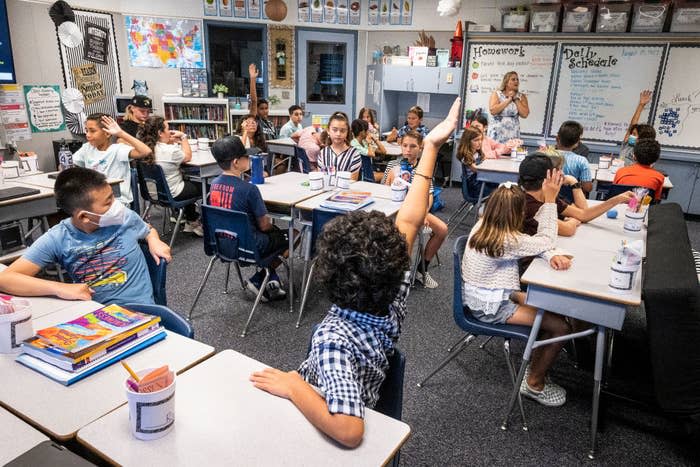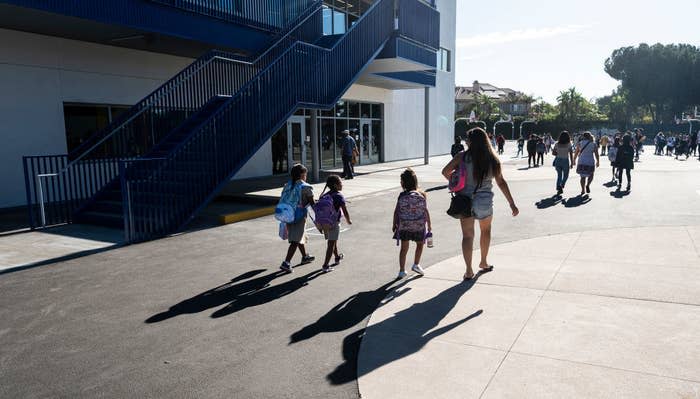This Educator Shared The Reality Of What Teachers Are Going Through Right Now, And She's Not Surprised There's A National Teacher Shortage
As back-to-school season commences, the national teacher shortage crisis looms, and it seems like it's only going to get worse.

About 300,000 public school educators quit their jobs between February 2020 and May 2022, according to the Bureau of Labor Statistics, and another 55% of educators have expressed thoughts about leaving, a survey from the National Education Association reported.

The National Education Association is the country's biggest labor union, representing nearly 3 million educators.
Many teachers have taken to social media to express their grievances about the shortage. Sari Beth Rosenberg, a New York City public school educator and cofounder of the nonprofit organization Teachers Unify to End Gun Violence, tweeted that the shortage is not "surprising" to her, after reflecting on the amount of criticism she's received this year.
Imagine being surprised that there’s a teacher shortage after watching the news headlines all year? I’ve been a teacher for 20 years & in the past year alone I’ve been told I’m lazy, “a groomer,” “racist” for “teaching CRT,” & I’ve endured every antisemitic attack/trope possible.
The now-viral tweet prompted a discussion about the reasons why so many teachers continue to leave their jobs. Many people responded to the post with their own anecdotes about how the shortage was affecting them.
One teacher agreed with Sari Beth and said they had considered quitting due to the similar poor treatment they had experienced.
@saribethrose About to start 21st year teaching and I've never seen teachers so demoralized. So many just getting out of the profession. I have seriously considered it too. And it's not the kids why I would leave. It's the rest you mentioned.
Another person said he had witnessed a lack of financial support from his school district, causing teachers to have to pay for their students' supplies out of their own pockets.
@saribethrose My wife taught first grade for 40 years. For most of that time the parents and children were respectful and appreciated what she did. Last two years that all changed. In addition we shelled out about $2K a year for items in a classroom with the district would not provide. Retired
Someone else brought up the point that teaching positions do not pay very well compared to other jobs.
@saribethrose @kdnerak33 I have my degree in teaching but I made more money working at Lowes.
And another person shared that he had witnessed teachers express anxiety over politics and health.
@saribethrose @DemVoterUSA My public school teacher friends are having trouble sleeping because school is getting ready to start. They stress over the politics, Covid-19, Monkeypox and now Polio. I've never seen them this stressed before and they are worried for the children. Many thinking of quitting.

